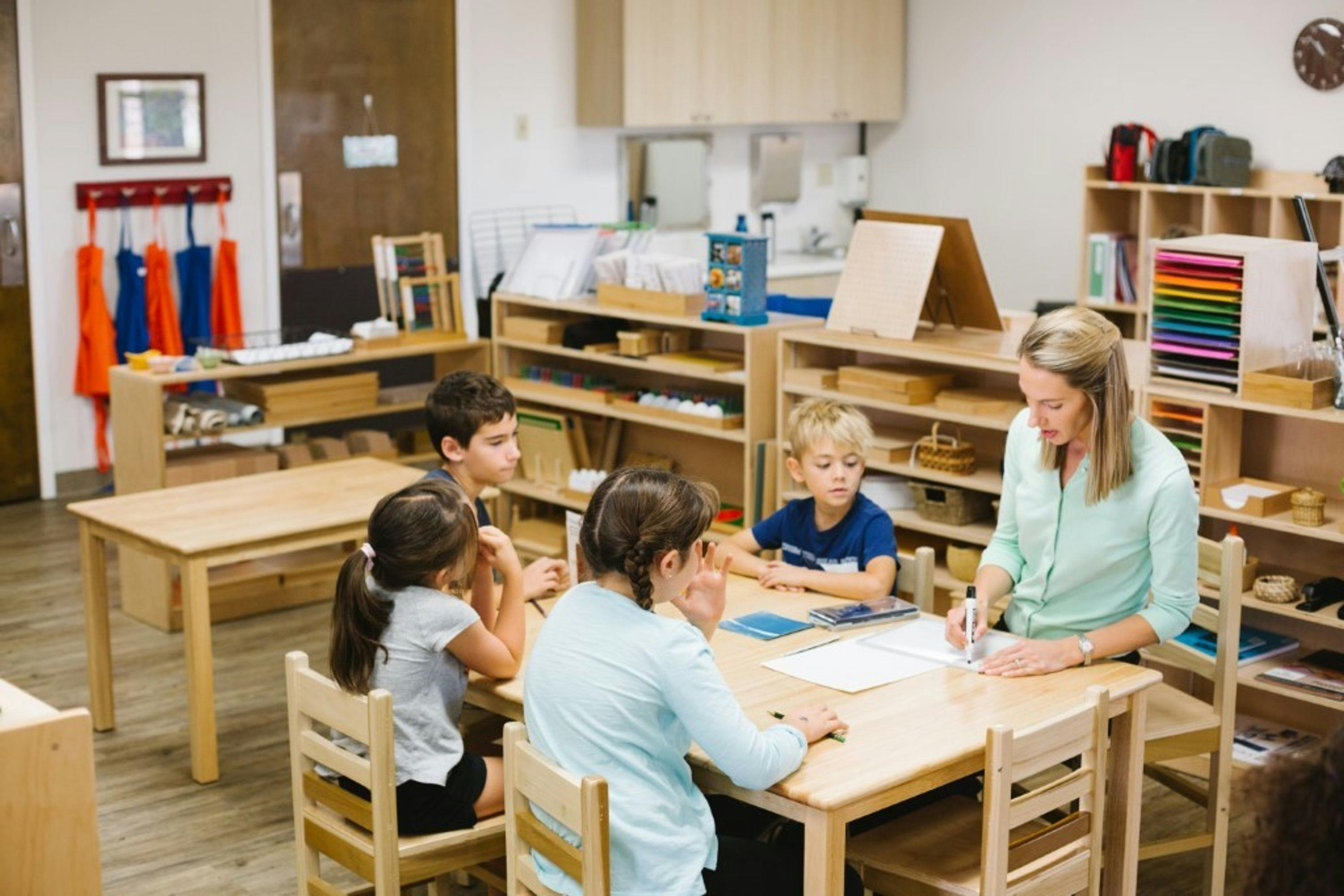Elementary Series: On Group Lessons
Small, interactive group work provides an exceptional learning experience for Montessori students
Kelli Harran
Director of Program Support
If you have ever walked into a Montessori elementary classroom, you may not have spotted the teacher immediately. Because unlike a traditional classroom, the guide delivers lessons to small groups of children. The guide might be sitting on the floor, tucked in a corner or together with children at a table.
This teaching format looks different than what many of us picture when we think about a classroom with rows of desks and a teacher at the front, but it provides an exceptional learning experience for children. This kind of individualized attention in any educational setting is rare, but it is the standard in a Montessori elementary classroom.
The small group lesson is a powerful tool that allows the guide to form close, trusting relationships with each child and offers natural opportunities to learn interactively. It also allows the guide to assess skills, retention, and understanding in real time.
Grouping
When the guide forms groups, she is not restricted by age or grade level in a mixed-age classroom. This means if a 7-year-old child is passionate about math and is ready for a lesson on squaring with a group of 9-year-old peers, the younger child can be included. The opposite holds true as well. If a 10-year-old child is challenged by spelling and needs more practice with vowel combinations, he may be paired with younger children who also need work in that area.
It also allows the guide to make observations about children who work well together and deliberately call them to the same lesson or to invite children who would be good partners to the same lesson who perhaps have not discovered one another yet.
Groups can be flexible and respond to interest, too! Sometimes a child walks by a lesson and is intrigued and asks to join. If it doesn’t require prerequisite knowledge, the guide will almost always agree, unless the lesson is already too far along.
Assessment
While some form of annual standardized testing happens in most Montessori elementary classrooms, the children do not take tests regularly as they would in a traditional elementary setting. How can the guide keep tabs on progress and measure understanding? The small group lesson is key!
With such a small group, the guide can check for understanding immediately. She is constantly assessing while she is giving lessons and observing children’s participation. She can do a review on the spot if it becomes clear that a child has forgotten a previous lesson that is needed to move to the next one. This is an incredible advantage for the child and the guide. It is reassuring to parents that the guide knows exactly where the child is academically — knows more, in fact, than a test with a grade could reveal.
The guide also does not need as much assessment time at the beginning of the year because children are in an elementary class for three years. In a traditional school, the teacher spends weeks or months getting acquainted with her new crop of students. In Montessori, the guide already knows the returning students quite well. While some review is necessary, she does not need to spend the first two months getting to know students, resulting in reduced core learning time.
Collaboration and Interaction
The kind of interaction a small group lesson provides feels very authentic. Unlike a teacher calling on a student with a raised hand, the conversation flows naturally. The children also have the opportunity to learn from each other and to continue the work collaboratively after the lesson.
Dr. Montessori recognized the importance of social interaction for the elementary child. She saw it as a powerful urge that prepares the child to enter society, which is why much of the work in elementary is done collaboratively. Lessons are given this way intentionally, and the follow-up work is an extension of this.
Kelli Harran
Kelli Harran is the Director of Program Support at Higher Ground Education.
Sign up for our newsletter
Get started with our community today! Sign up for resources.
